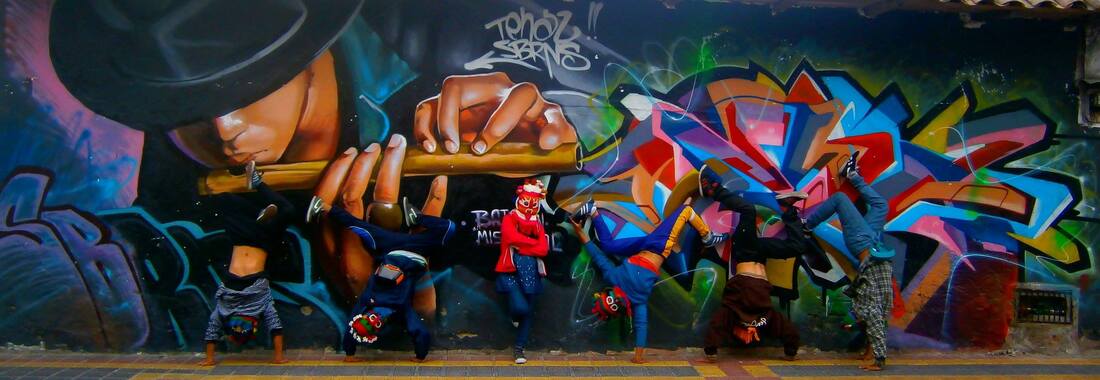|
|
|
In memory of co-author Monique Nuijten. Thank you for all your inspiration and the nice partnership working on this article together.
‘A Breaker is peaceful and calm. At the moment of dancing he expresses all his feelings, he expresses his anger, his love, his sadness, everything. While dancing he develops. Breaking turns them into better people.’ ‘The moment you start to dance and become a b-boy or b-girl everything in you changes, it’s like an armor you put on and you will never take off.’ ‘This is what I love the most, it is what makes me, it is why I keep on fighting, the reason why I am still standing, it is the reason why I can keep on following my dream.’ ‘It is my life, without it [dance] I can’t live, it is like the air.’ In our Identities article, ‘When breaking you make your soul dance’ Utopian aspirations and subjective transformation in breakdance’, we dive into the world of breaking by following the Naturalz crew in Ecuador. The quotes above from various crew members illustrate the importance and meaning of breakdance for them. Breaking is commonly analysed as a subculture of resistance. We analyse two – often neglected – dimensions of this resistance: the significance of utopian aspirations and the role of the body in subjective transformation. The breakers shape a new lifestyle for themselves through breakdance. A lifestyle they fight to preserve every day.
The Naturalz crew, a breaking group in Quito, Ecuador, consisted of eight young men and two young women around the age of twenty. Coming from lower-class neighbourhoods in a highly segregated and violent society, these youth refuse to take on conventional family roles or to join gang life. Instead, they engage in breaking, a dynamic and physically demanding form of street dance. The dedication and discipline required to become a breaker demonstrates that these youth hold certain qualities through which they want to claim a dignified place in society.
'It doesn’t matter where you go, whether it is just to the store at the corner to buy something, you take the breaker with you – you enter as a breaker and leave as a breaker. You do everything as a breaker. Breaking is the way you dress, walk, and how you talk.' In our study of the Naturalz crew in Quito, we noticed the importance of utopian visions in breaking. The youth of the Naturalz crew do not want an ‘ordinary life’, a boring eight-to-six job in a socially and economically segregated society based on conservative and material values. They do not want the violence of drug gangs either. They want to live in a society based on the values of peace, love and equality. They express these values in their dancing and their lifestyle as breakers. 'If for some reason I ever have to stop breaking and devote myself to being a businesswoman like I thought in the beginning, well, then I would be the most unhappy woman in the world. It would be like having no life, being like a robot and nothing more, and just doing what people tell me. But dancing on the other hand […] is awesome because you follow your own law, your own rhythm.' A second significant phenomenon in our study was the role of the body in subjective transformation. For the Naturalz crew, breaking is central to their entire being and an ‘expression of their soul’, as Hazzle explained. We argue that the physical strength and discipline required for breaking has a transformative effect: it changes them into different people. From defenceless and disrespected youths, breakers transform into determined people with physical power and emotional strength. Our study of breaking shows that subjective transformation can take place through striving for utopian aspirations as enacted through the body. Throughout the study and our article it becomes clear how important breaking is for these youth, and how they have shaped a new lifestyle through it.
Blog post by Maritza Bode Bakker, Netherlands
Read the full article: Bakker, Maritza Bode & Nuijten, Monique. ‘When breaking you make your soul dance’ Utopian aspirations and subjective transformation in breakdance. Identities: Global Studies in Culture and Power. DOI: 10.1080/1070289X.2017.1400275
0 Comments
Your comment will be posted after it is approved.
Leave a Reply. |
|
Explore Identities at tandfonline.com/GIDE |
|
The views and opinions expressed on The Identities Blog are solely those of the original blog post authors, and not of the journal, Taylor & Francis Group or the University of Glasgow.

